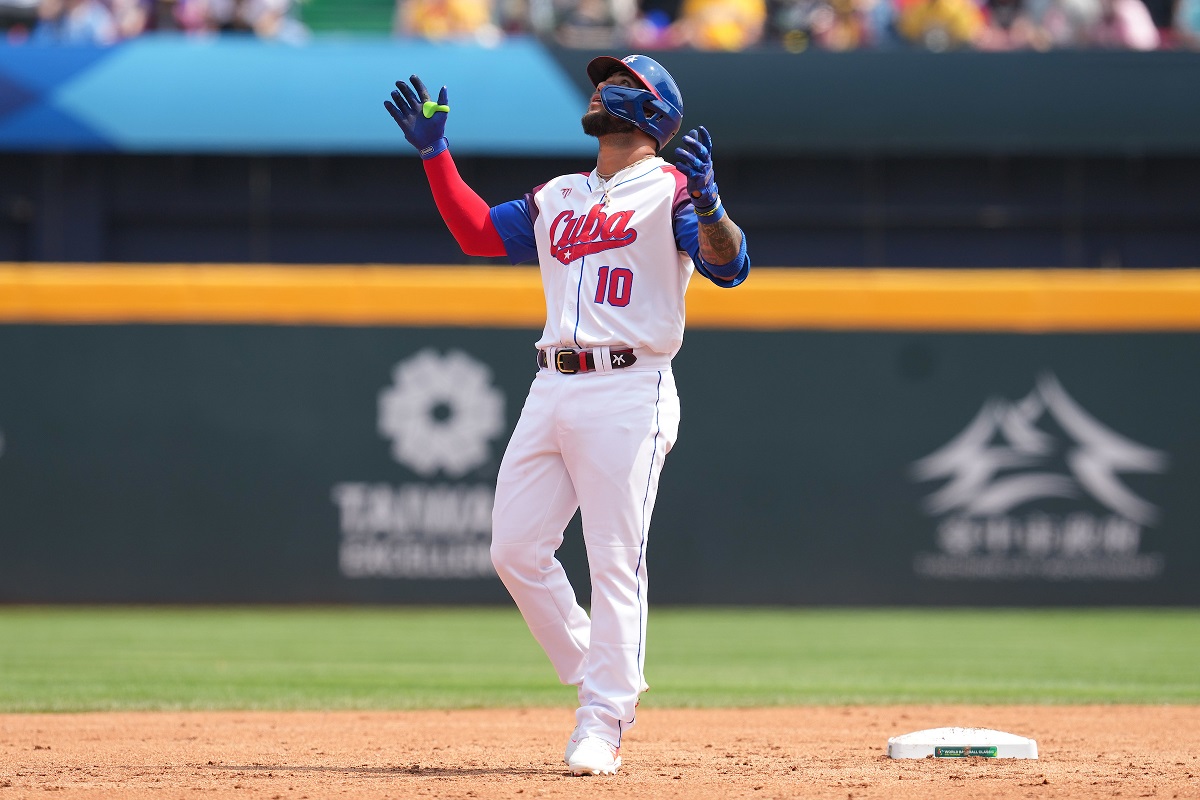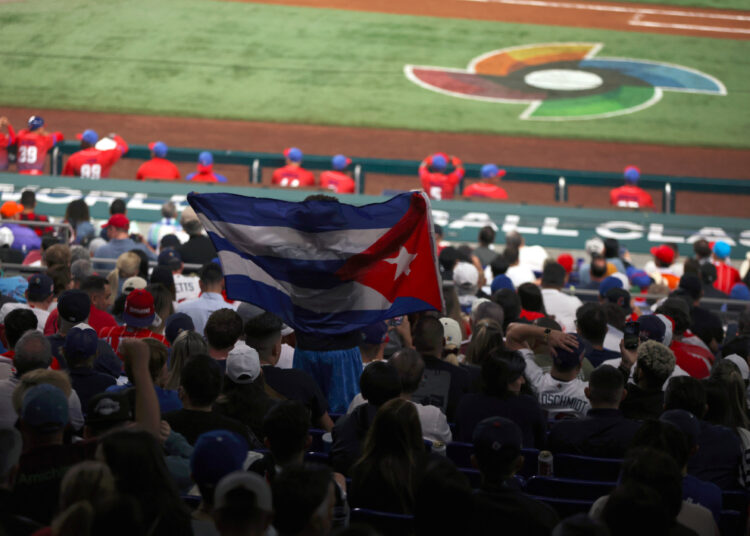If the sixth edition of the World Baseball Classic were to start this Sunday, Cuba would not be among the participants. Despite playing in all previous tournaments, being the 2006 runner-up, a 2023 semifinalist and, therefore, one of the teams that secured its ticket to the 2026 version on the field, the island would not be among the countries heeding the call of “Play Ball!” in March 2026.
The reason for this potential absence, unfortunately, would not have to do with any sporting issue, but rather with political issues and tensions that, from both sides, have affected the destinies of the Caribbean athletic universe.
“The event organizers have stated that, despite requesting it with sufficient notice, they do not have the approval from the U.S. government that allows Cuba’s participation,” the Cuban Baseball Federation (FCBS) specified in a statement issued this Friday night.
“Our country has been the victim of unfair, unequal and politically motivated treatment, which is incompatible with the principles of respect, equity and transparency that should govern any international competition. Cuba does not ask for privileges. The Cuban baseball players earned, on the field, their right to participate in the 6th World Baseball Classic,” the FCBS’s protest note added.
To date, MLB has not officially invited Cuba to compete in the premier international baseball event, leaving the island out of the process of submitting preliminary rosters of 50 players, the deadline for which was Monday, September 1.
This, it is worth clarifying, is not the responsibility of Major League Baseball, an entity that has openly advocated for integration and has always shown interest in maintaining ties with Cuba in the sports field. The evidence is compelling: two MLB franchises have visited Havana in the last 26 years and in 2018 an agreement was signed regularizing the flow of Cuban players to the United States, later canceled by the Donald Trump administration.
In the current case, Major League Baseball has complied in a timely manner with the established mechanisms to obtain authorization for Cuba, which requires a special license from the Office of Foreign Assets Control (OFAC). Without this approval, no matter how much willingness and goodwill MLB has, it is hamstrung and unable to process Cuban participation in the tournament.
A familiar path
“The FCBS denounces the application of a discriminatory policy against Cuban baseball players. The U.S. regulations that prevent our athletes from attending this event are contrary to the spirit of sportsmanship. The entire process has been characterized by an unjustified delay that generates uncertainty and affects the technical process of compiling our roster.”
In this way, Cuban baseball authorities protested the current situation on the island regarding the sixth World Baseball Classic. At this time, the Federation faces the situation with suspicion, concern and no guarantee that the course of events will change in the short term.
However, this is not an unfamiliar scenario. Three years ago, months before the fifth World Baseball Classic, MLB also failed to receive the OFAC license for the Caribbean island’s participation on time. That authorization was issued in December 2022, long after the rest of the teams had submitted their preliminary rosters.
For this reason, Cuba had to follow a different roadmap, moving within different timeframes, until everything was finally resolved and they competed. This does not mean that delay and differential treatment are correct practices, nor can we guarantee a repeat of the “happy ending” of the story, because neither the actors nor the political circumstances in the United States are the same as in 2022.
The OFAC license is just the first step
Regardless of whether MLB obtains the OFAC license for Cuba’s participation in the sixth World Baseball Classic, this would be just the first of several bureaucratic procedures that must be overcome to finalize the island’s presence at the event.
This would then be followed by the review of the Cuban roster, with the subsequent issuance of individual licenses to players residing in the United States who are among the candidates to represent Cuba. In addition, the corresponding permits from Major League Baseball organizations would be required to “release” their players who have accepted the Cuban call-up.
This, so far, has been a more expeditious and less controversial process for MLB, but surprises and new setbacks along the way cannot be ruled out.

Once the roster is defined, visa applications will then arise, which will almost certainly be a point of contention for the upcoming Classic. Cuba is anchored in Group A of the event along with Puerto Rico, Canada, Panama and Colombia, with whom it will compete at the legendary Hiram Bithorn Park in San Juan, the Puerto Rican capital.
This means that, starting with the first phase, they will have to apply for visas to the United States, something that has not happened in the last four editions. In 2009, Cuba began its journey in Mexico and then, in 2013, 2017 and 2023, it has always started in Asia. Now the landscape has changed.…
While visas to play in the United States have always been granted for the Classic, the most recent history of denials to athletes does not inspire optimism.
Last July, for example, U.S. authorities denied visas to the seven members of the coaching staff of the Cuban team that was scheduled to participate in the qualifying tournament for the Little League Softball World Series for girls, 9-10 years old, held in Puerto Rico.
A few days earlier, at the end of June, the island’s women’s volleyball team that was scheduled to participate in the NORCECA Final Four in Puerto Rico also failed to receive visas. In 2025 alone, several Cuban delegations have been affected by the same issue:
* Representation at the World Masters Indoor Athletics Championships, held in Gainesville, Florida.
* The men’s basketball team was eliminated from the FIBA AmeriCup after being unable to play the last qualifying match scheduled in Puerto Rico.
* The baseball team that was scheduled to participate in the Antillana Cup held in the Puerto Rican town of Aguadilla.
If we go back just a little further, in September 2023, triple jumpers Leyanis Pérez and Liadagmis Povea and long jumper Luis Enrique Zayas were unable to compete in the Diamond League final held in Eugene. That same year, in August, the women’s volleyball team also did not participate in Puerto Rico’s Pan American Cup, which was a qualifying event for the continental multi-sport event in Santiago, Chile.
Cuba is one of the countries whose citizens have severely restricted entry to the United States as a result of a Trump administration measure. Among the exceptions to that decision, in effect since June, are — at least in theory — athletes and members of sports teams traveling to U.S. territory for major sporting events. We’ll see what happens in the case of the World Baseball Classic.










